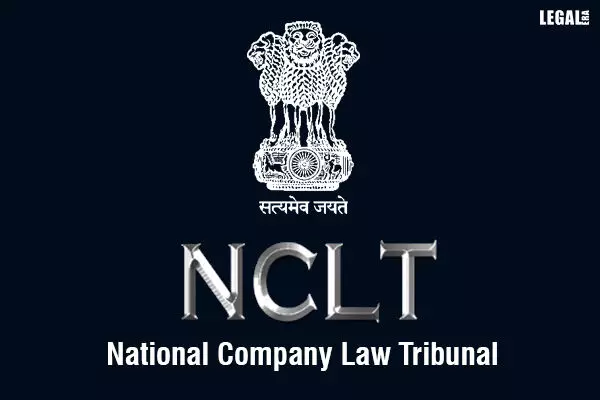- Home
- News
- Articles+
- Aerospace
- Artificial Intelligence
- Agriculture
- Alternate Dispute Resolution
- Arbitration & Mediation
- Banking and Finance
- Bankruptcy
- Book Review
- Bribery & Corruption
- Commercial Litigation
- Competition Law
- Conference Reports
- Consumer Products
- Contract
- Corporate Governance
- Corporate Law
- Covid-19
- Cryptocurrency
- Cybersecurity
- Data Protection
- Defence
- Digital Economy
- E-commerce
- Employment Law
- Energy and Natural Resources
- Entertainment and Sports Law
- Environmental Law
- Environmental, Social, and Governance
- Foreign Direct Investment
- Food and Beverage
- Gaming
- Health Care
- IBC Diaries
- In Focus
- Inclusion & Diversity
- Insurance Law
- Intellectual Property
- International Law
- IP & Tech Era
- Know the Law
- Labour Laws
- Law & Policy and Regulation
- Litigation
- Litigation Funding
- Manufacturing
- Mergers & Acquisitions
- NFTs
- Privacy
- Private Equity
- Project Finance
- Real Estate
- Risk and Compliance
- Student Corner
- Take On Board
- Tax
- Technology Media and Telecom
- Tributes
- Viewpoint
- Zoom In
- Law Firms
- In-House
- Rankings
- E-Magazine
- Legal Era TV
- Events
- Middle East
- Africa
- News
- Articles
- Aerospace
- Artificial Intelligence
- Agriculture
- Alternate Dispute Resolution
- Arbitration & Mediation
- Banking and Finance
- Bankruptcy
- Book Review
- Bribery & Corruption
- Commercial Litigation
- Competition Law
- Conference Reports
- Consumer Products
- Contract
- Corporate Governance
- Corporate Law
- Covid-19
- Cryptocurrency
- Cybersecurity
- Data Protection
- Defence
- Digital Economy
- E-commerce
- Employment Law
- Energy and Natural Resources
- Entertainment and Sports Law
- Environmental Law
- Environmental, Social, and Governance
- Foreign Direct Investment
- Food and Beverage
- Gaming
- Health Care
- IBC Diaries
- In Focus
- Inclusion & Diversity
- Insurance Law
- Intellectual Property
- International Law
- IP & Tech Era
- Know the Law
- Labour Laws
- Law & Policy and Regulation
- Litigation
- Litigation Funding
- Manufacturing
- Mergers & Acquisitions
- NFTs
- Privacy
- Private Equity
- Project Finance
- Real Estate
- Risk and Compliance
- Student Corner
- Take On Board
- Tax
- Technology Media and Telecom
- Tributes
- Viewpoint
- Zoom In
- Law Firms
- In-House
- Rankings
- E-Magazine
- Legal Era TV
- Events
- Middle East
- Africa
NCLAT Chennai: Former Liquidator's Recall Rights Limited After Replacement

NCLAT Chennai: Former Liquidator's Recall Rights Limited After Replacement
The National Company Law Appellate Tribunal (NCLAT), Chennai Bench, recently rendered a significant judgment regarding the jurisdiction and rights of liquidators in insolvency proceedings. The Bench, composed of Justice M. Venugopal and Justice Sharad Kumar Sharma as Judicial Members, alongside Jatindranath Swain as the Technical Member, held that a liquidator, upon being replaced, cannot independently seek the recall of an order issued during his tenure.
In a case brought before the NCLAT, an erstwhile liquidator had filed an appeal. However, during the pendency of the appeal, a new liquidator was appointed, who subsequently withdrew the appeal. The former liquidator then sought to challenge the withdrawal through a review application before the NCLAT. The tribunal, however, dismissed this application, asserting that the former liquidator lacked the standing to question decisions made by the new liquidator in their official capacity.
The background of the case involves Jeypore Sugar Co. Ltd., which underwent Corporate Insolvency Resolution Process (CIRP) proceedings. Subsequently, the NCLT ordered the liquidation of the company and appointed V. Venkata Sivakumar as the liquidator. An appeal was filed against an NCLT order concerning the inclusion of certain assets in the liquidation estate.
During the appeal process, the erstwhile liquidator was replaced by Hari S. Hari Karthik. This change in personnel was upheld by the NCLAT. Following this, the new liquidator withdrew the appeal filed by the former liquidator. In response, the erstwhile liquidator filed a review application before the NCLAT, contesting the withdrawal on the grounds of lack of opportunity to be heard.
However, the NCLAT ruled that the former liquidator could not seek review/recall of the withdrawal order in his personal capacity. The tribunal emphasized that the appeal before the NCLAT was filed by the liquidator in their capacity as the representative of the Corporate Debtor, not in their personal capacity. Therefore, the erstwhile liquidator lacked the legal standing to challenge decisions made by the new liquidator.
The NCLAT concluded that the review application was filed without legal justification or locus standi. It reaffirmed the authority of the new liquidator to make subjective decisions regarding ongoing litigations. The bench clarified that if the former liquidator is aggrieved by such decisions, the appropriate remedy would be to file an appeal before the Supreme Court under Section 62 of the Insolvency and Bankruptcy Code (IBC). Consequently, the review application was dismissed.



